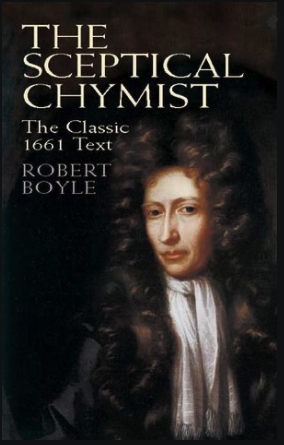The Culture of Chemistry
To do full justice to chemistry, it needs to be set in its wider context. We need to give some indication of its relationship to other subjects and activities, and of the various considerations that enter into its practice. We need to know how the subject has developed and to the celebrate the success of the applications of chemistry and the underlying theories as well as look at their limitations.
Why include the Culture of Chemistry?
Teaching for the current IB chemistry Diploma programme started in 2014 with the first examinations in 2016. In previous programmes attempts were made to relate chemistry to the Theory of Knowledge but in this programme the Nature of Science is specifically included as an integral part of the syllabus. It is hoped that teachers will seamlessly include this in their teaching but an analysis of the exams since 2016 show that very few questions are asked that actually assess the Nature of Science and it is easy for Nature of Science to be relegated as a small and not very important part of the course. As I write this (it is now November 2020) I was expecting to be working hard to overhaul and update the whole of the website to prepare it for the new programme which was initially due to be taught from the summer of 2021 with the first assessment in 2023. Having already been delayed by one year the implementation of the new programme has now been put back even further due to the Covid-19 pandemic. It is now scheduled to start in 2023 with the first exams taking place in May 2025.
The website already contains a huge amount of material for both teachers and students for the current programme. Although the new programme has not yet been published, the IB has confirmed that it will be based around two main headings – Structure and Reactivity. These will encompass basic concepts such as 'Models of the particulate nature of matter', 'Models of bonding and structure' and 'Classification of matter' under Structure and 'What drives chemical reactions?', 'How much, how fast and how far?' and 'What are the mechanisms of chemical change?' under Reactivity. The syllabus is much reduced in content and all the current options will disappear. Effectively what will be studied will be pure chemistry with much less emphasis on chemical applications. TOK is also changing. For first examination in 2022 students need to look as twelve key concepts - and one of these is "Culture".

The beginning of pure chemistry?
When I start a new year with a fresh group of students I usually begin by saying that they have chosen chemistry as one of their six IB subjects – so what is chemistry? This leads to an interesting discussion amongst students. To me it goes far beyond just the study of matter and how different substances interact with each other but often that seems to be how it is defined. I would urge you to read an article by Peter Nelson titled "What is chemistry that I may teach it?" which was published in 2018. In this article, Peter Nelson, who is a lecturer at the University of Hull in the UK, argues that chemistry is a much broader subject than is normally taught in schools and involves application, intuition and a knowledge of how the subject has developed over time. He starts his paper with 'What is chemistry?' is not as obvious as we may think, and that behind different views about the teaching of chemistry lie different conceptions as to what chemistry is. He emphasises what I have already been doing in my ‘Pause for Thought’ sections that due to the approximate character of many chemical theories it means that we need to present them critically. We need to show, not only how well they work, but what their limitations are. His final paragraph is: “The implication of all this for the teaching of chemistry is that, to do full justice to the subject, we need to set it in its wider context. We need to give some indication of its relationship to other subjects and activities, and of the various considerations that enter into its practice.” As I have mentioned in my page on Why TOK & Chemistry? this is neatly summed up in the quote from Georg C Lichtenberg (1742-1799) who was a professor in Sweden in the eighteenth century.
“Wer nichts als Chemie versteht, versteht auch die nicht recht”
which translates as “He who knows nothing but chemistry does not know chemistry either”.
I now have some time to devote to this alongside the mammoth task of redoing the website and my Study Guide for the new programme. This section which provides quizzes on the Culture of Chemistry with fully explained answers is an attempt to broaden the teaching of chemistry and to help to make teachers and students alike more aware of what chemistry actually is. I hope too it will add to the enjoyment of teaching and learning chemistry and further life-long learning.
Culture of chemistry questions
Note that as these are not questions that are likely to be asked on exam papers, students can access them directly together with the model answers under The Culture of Chemistry in Complete course for students.

 IB Docs (2) Team
IB Docs (2) Team